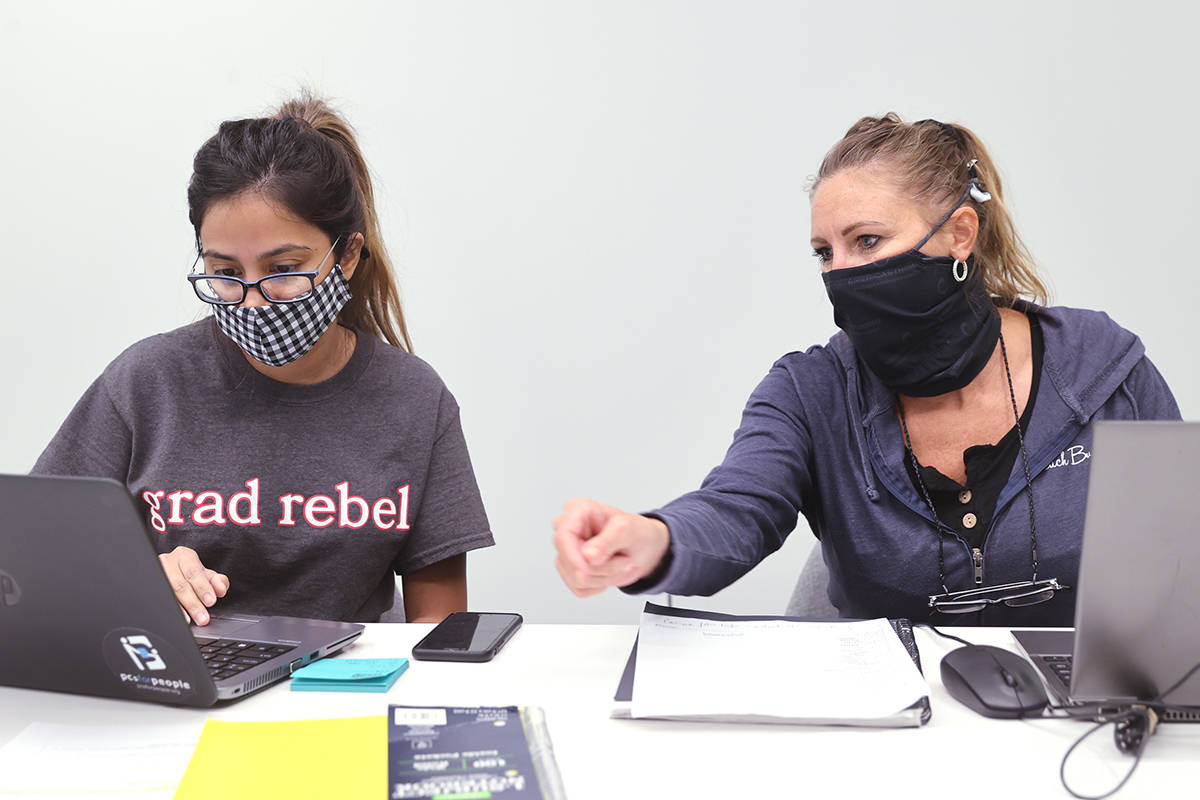COVID investigation, contact tracing to be reduced as cases explode
Overwhelmed disease investigators should curtail the information they collect from Nevadans with COVID-19, state officials recommended Tuesday.
Identifying an infected person’s close contacts and where they believe they caught the disease should be done only “if time and case volume permits,” according to a new Nevada Department of Health and Human Services memo sent to local health authorities.
Instead, investigators’ top priority should be notifying infected residents of their positive lab result within 24 hours so they can self-isolate.
The stark shift in strategy is to encourage “condensed data collection” as Nevada’s COVID-19 cases grow exponentially, according to the memo. As of Tuesday, more than 2,600 new cases were reported on average each day over the past seven days — more than triple the rate recorded in early November.
The memo also recommends contact tracers narrow which close contacts they inform about coronavirus exposure. Until now, all of an infected person’s close contacts have been notified.
“The high disease burden, in effect, renders disease investigation and contact tracing ineffective,” the memo states. “To focus our limited public health resources to be the most impactful, our overall approach and strategy must be modified in a targeted manner.”
State officials report there are more than 500 disease investigators working in Nevada. The state also has 75 contact tracers working through Deloitte, a fraction of the 250 that were working this summer.
Since early August, disease investigators statewide have collected information from infected Nevadans using an extensive 65-question survey. Many of those data points are now being abandoned in an effort to speed up interviews.
Investigators will no longer ask whether an infected person recently visited a casino or attended a social gathering. A question about whether an infected person works in a hotel, casino or as a food handler has also been scrapped.
Investigators should continue to ask whether an infected person works as a first responder, school employee or health care worker, the memo states. They should also ask whether the person has taken a COVID-19 vaccine, which is beginning to be distributed in Nevada this month.
Disease investigation is a crucial part of the public health response to an epidemic. The process involves alerting people they have tested positive for an infectious disease and then interviewing them to determine where they likely caught and then spread it. It’s a pivotal lead-up step to contact tracing, which Nevada officials say is a key strategy to prevent further disease spread.
On average, it takes about 30 minutes to complete the survey that was introduced in August, DHHS spokeswoman Shannon Litz said. The new, shortened survey should take about half that long.
The memo also recommends that investigators prioritize interviewing people who have tested positive for COVID-19 in the past six days. They should stop efforts to interview infected people who submitted their testing specimen more than 14 days ago, unless that person was part of a large outbreak at a workplace.
Under the state’s new recommendations, contact tracing operations with limited resources should only reach out to people living with an infected person and close contacts who live, work or visit crowded workplaces and congregate living facilities, like nursing homes or prisons.
Even with the recommendations, “many Nevada jurisdictions will still not have adequate resources for disease investigation and contact tracing,” the memo states.
As of Friday, more than 36,000 cases had been identified as a result of contact tracing efforts statewide, about 22 percent of total cases reported to date. Close contacts are reached via telephone calls and a third-party text messaging program, the latter of which the state will stop using at the end of this year when its contact tracing contract with Deloitte expires.
Individual counties can decide how best to implement the new guidelines inside their own jurisdictions, according to the memo. A Southern Nevada Health District official was not available to comment Tuesday on whether the agency planned to change its disease investigation process.
State health officials announced they are developing an online questionnaire for disease investigation that infected people can complete on their own, according to the memo. The project is in “the early building stages” and no timeline on its completion was provided.
Contact Michael Scott Davidson at sdavidson@reviewjournal.com or 702-477-3861. Follow @davidsonlvrj on Twitter.
DHHS Disease Investigation and Contact Tracing Update - December 2020 by Las Vegas Review-Journal on Scribd


















